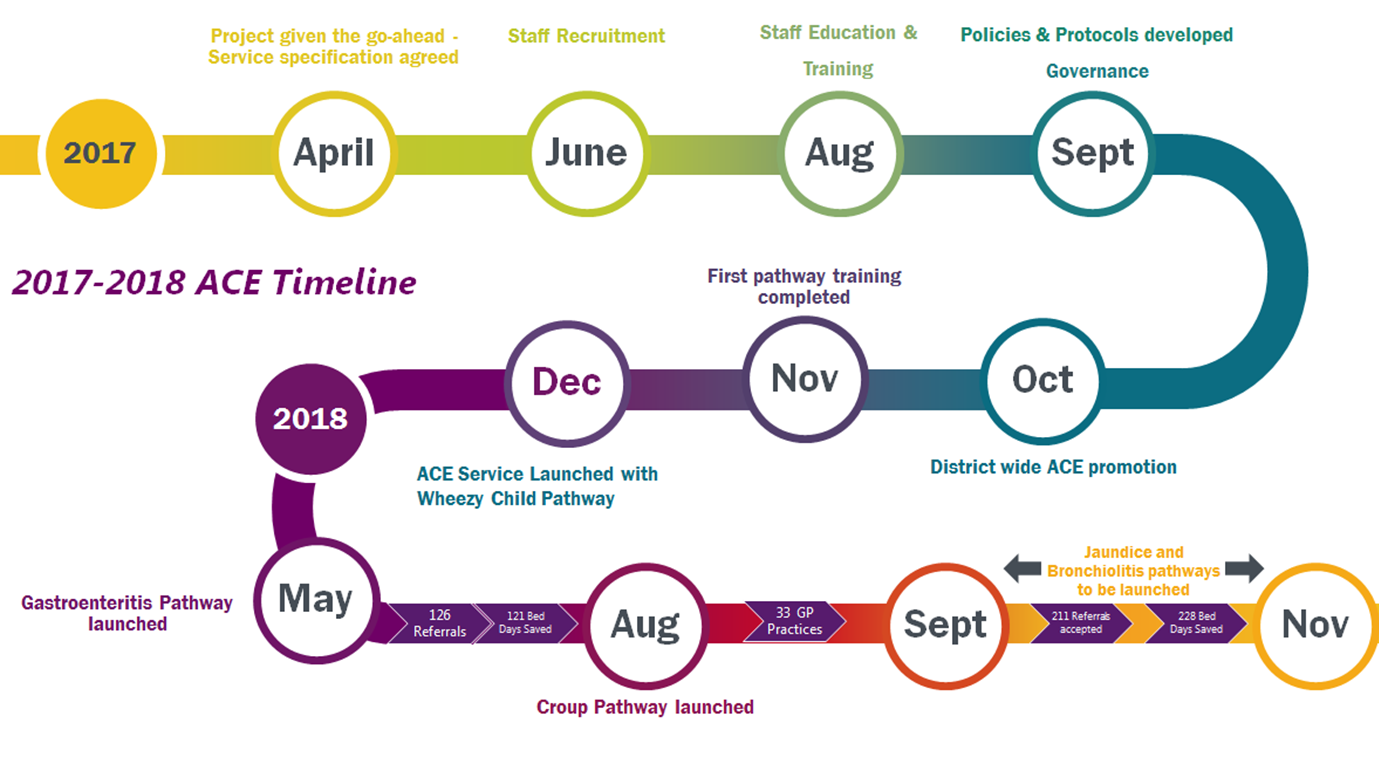COVID19: Spotlight on Paediatric Ambulatory Care
An ambulatory care model developed at Bradford Teaching Hospitals NHS Foundation Trust that delivers care for children and young people at home.
Interest in a virtual hospital care model is increasing as acute trusts manage the pressures of COVID-19 and ensure care for children and young people remains safe, timely, equitable, effective, efficient and child and family centred.
The Ambulatory Care Experience (ACE) service established by Bradford Teaching Hospitals NHS Foundation Trust was originally published on QI Central in April 2019.
The ACE project aims were:
- Develop an acute care model that will produce a more streamlined and quality acute paediatric service.
- Produce a standard model for managing acute illness in children and young people in 5 clinical pathways over a 12 month period – each in a standard format within an implementation framework that includes:
- A nurse training programme.
- A process to assess new clinical pathways against the ‘current state’ to ensure safety.
- A process to audit the pathway after implementation to see if changes are required.
- Develop standard governance processes that include procedures for clinical escalation, standardised communication, full capacity protocols and how to manage families who cannot be contacted after referral.
The model was the result of system wide collaboration between GPs, the local CCG and the Bradford Royal Infirmary:
- Delivered in the community setting and staffed by children’s community nurses (Band 6) working between 09.00am-21.00pm, 7 days a week.
- Once a child or young person is accepted into the service full clinical responsibility lies with the Consultant Paediatrician on call at the Bradford Royal Infirmary.
- Patients have 24-hour open access to the paediatric Clinical Decision Area at the hospital while under the ACE service.
- Patients are accepted into ACE with referrals made by phone and electronically on both primary and secondary care electronic patient record systems.
- The ACE nurse makes telephone contact with the family within 2 hours and arranges a home visit usually within 4 hours of referral.
- At the visit a focussed history and assessment is undertaken then further home visits or telephone reviews are arranged.
- Families remain in the service for up to 3 days and in addition to acute management the team also deliver a care bundle of education and safety netting advice.
- ACE nurses discuss each patient under their care with the paediatric consultant at least 3 times a day.

In the first 9 months of the service 87% of appropriately referred children and young people referred during service hours had all their care delivered at home.
There have been no adverse events since service launch.
There are now plans to introduce the ACE model in other acute trusts within the region and the West Yorkshire and Harrogate Paediatric Ambulatory Care Network was established in September 2019.
Full details of this QI project written by Dr Mathew Mathai, Consultant Paediatrician at Bradford Teaching Hospitals NHS Foundation Trust can be found here.
Hear more about the project from the ACE team on the RCPCH webinar here.
